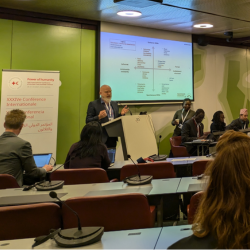-
Study
-
Quick Links
- Course Search
- Unlock Your Potential
- Still time to Apply
- Higher and Degree Apprenticeships
- Continuing Professional Development
- Book an Open Day
-
Undergraduate
- Course Search
- Application Guides
- UCAS Exhibitions
- Foundation Years
- Fees and Funding
- School & College Outreach
- Information for Parents
-
Postgraduate
- Course Search
- Application Guide
- Postgraduate Research Degrees
- Flexible Learning
- Fees and Funding
- Change Direction
- Register your Interest
-
Student Life
- Students' Union
- The Hub - Student Blog
- Accommodation
- Northumbria Sport
- Support for Students
-
Experience Northumbria
- Open Days & Events
- Virtual Tours
- Campus Tours
- Life in Newcastle
-
-
International
International
Northumbria’s global footprint touches every continent across the world, through our global partnerships across 17 institutions in 10 countries, to our 277,000 strong alumni community and 150 recruitment partners – we prepare our students for the challenges of tomorrow. Discover more about how to join Northumbria’s global family or our partnerships.
View our Global Footprint-
Quick Links
- Course Search
- Undergraduate Study
- Postgraduate Study
- Information for Parents
- London Campus
- Northumbria Pathway
- Sign up for Information
-
International Students
- Information for Students
- International Events
- Application Guide
- Entry Requirements and Education Country Agents
- Global Offices
- English Requirements
- English Language Centre
- International student support
-
International Fees and Funding
- International Undergraduate Fees
- International Undergraduate Funding
- International Masters Fees
- International Masters Funding
- International Postgraduate Research Fees
- International Postgraduate Research Funding
-
International Partners
- Agent and Representative Network
- Global Partnerships
- Global Community
-
International Mobility
- Information for Northumbria Students
- Information for Incoming Exchange Students
-
-
Business
Business
The world is changing faster than ever before. The future is there to be won by organisations who find ways to turn today's possibilities into tomorrows competitive edge. In a connected world, collaboration can be the key to success.
More on our Business Services -
Research
Research
Northumbria is a research-rich, business-focused, professional university with a global reputation for academic quality. We conduct ground-breaking research that is responsive to the science & technology, health & well being, economic and social and arts & cultural needs for the communities
Discover more about our Research -
About Us
-
About Northumbria
- Our Strategy
- Our Staff
- Place and Partnerships
- Leadership & Governance
- Academic Departments
- University Services
- History of Northumbria
- Contact us
- Online Shop
-
-
Alumni
Alumni
Northumbria University is renowned for the calibre of its business-ready graduates. Our alumni network has over 246,000 graduates based in 178 countries worldwide in a range of sectors, our alumni are making a real impact on the world.
Our Alumni - Work For Us
What will I learn on this module?
You will learn about the field of organisational psychology from both a theoretical/academic and applied perspective. The module adopts a widened organisational perspective and considers topics such as organisational culture, organisational change and development, leadership and team working. You will learn to develop a critical approach to theories and models and to identify the practical, professional and ethical issues inherent in undertaking research and practice in the area of occupational and organisational psychology.
How will I learn on this module?
You will learn through seminars, group activities and independent learning. Seminars will combine with independent study to support you in mastering theories and concepts and prepare you for module exercises.
Independent study is supported by the University’s e-learning portal (elp) which will give you access to a range of study mediums including, for example, academic journals, e-books, podcasts and lecture/presentation recordings. Essential and recommended independent study and preparation will be given in advance of lectures via the digitised module reading list.
Student based activities are an important feature of the module enabling you to work in small groups or pairs to apply knowledge and develop skills. Scenarios and case studies are used to reinforce the applied nature of the subject and help with the transfer of theoretical concepts and academic findings to the real world. The interactive nature of the student based activities will give you opportunities to develop confidence and skills in areas such as, for example, group working, critique and debate, and presentation skills, which in turn can enhance your employability.
How will I be supported academically on this module?
Support will include feedback from module tutors during group during small-group seminars and tutorials. In particular they will support you in adapting to the learning approach and consolidation of knowledge throughout the module and how it relates to other modules within the programme. In addition, tutors will respond to questions via the module’s discussion board at the University’s eLearning Portal so that the whole group can benefit.
What will I be expected to read on this module?
All modules at Northumbria include a range of reading materials that students are expected to engage with. Online reading lists (provided after enrolment) give you access to your reading material for your modules. The Library works in partnership with your module tutors to ensure you have access to the material that you need.
What will I be expected to achieve?
Knowledge & Understanding:
KSU 1: You will be expected to critically evaluate theoretical models of organisations/organisational change and development
KSU 2: You will utilise an evidence base to critically evaluate organisational development interventions and approaches
Intellectual / Professional skills & abilities:
IPSA 1: You will be able to analyse critical issues related to performance, improvement and change within an organisational scenario/case study
IPSA 2: You will develop your ability to communicate academic and/or complex information to a range of audiences
Personal Values Attributes (Global / Cultural awareness, Ethics, Curiosity) (PVA):
PVA 1: You will be able to identify ethical and professional issues related to research and practice in the field of organisational psychology
How will I be assessed?
Formative Assessment:
You will participate in group activities and one to one work where you will apply the skills learned as part of the module. Examples include group presentations and extracting and communicating information from complex reports. Feedback will be provided verbally by the module tutor on your skills development and peer feedback will be encouraged as part of the process. Self-assessment and reflection will also be encouraged. Where appropriate, feedback will also be provided by the module tutor to identify ways to support skill development and employability enhancement. (KU1; IPSA1 PVA 1)
Pre-requisite(s)
N/A
Co-requisite(s)
N/A
Module abstract
‘The Organisation’ will provide you with an introduction to the field of organisational psychology enabling you to have a better understanding of contemporary organisational issues, particularly those relating to the human element. Academic literature is utilised alongside interactive activities and case studies to help students to link theory, research and practice. Ethical and professional issues encountered by practitioners and researchers are explored and a scientist-practitioner model is promoted to develop students’ critical thinking and their ability to apply psychological principles in organisational settings. Completion of the module will provide you with key knowledge and skills that are directly relevant to future employment in areas such as occupational psychology, human resource management, organisational development and consultancy.
Course info
Credits 20
Level of Study Postgraduate
Mode of Study 1 year Full Time
2 other options available
Department Psychology
Location City Campus, Northumbria University
City Newcastle
Start September 2025
All information is accurate at the time of sharing.
Full time Courses are primarily delivered via on-campus face to face learning but could include elements of online learning. Most courses run as planned and as promoted on our website and via our marketing materials, but if there are any substantial changes (as determined by the Competition and Markets Authority) to a course or there is the potential that course may be withdrawn, we will notify all affected applicants as soon as possible with advice and guidance regarding their options. It is also important to be aware that optional modules listed on course pages may be subject to change depending on uptake numbers each year.
Contact time is subject to increase or decrease in line with possible restrictions imposed by the government or the University in the interest of maintaining the health and safety and wellbeing of students, staff, and visitors if this is deemed necessary in future.
Useful Links
Find out about our distinctive approach at
www.northumbria.ac.uk/exp
Admissions Terms and Conditions
northumbria.ac.uk/terms
Fees and Funding
northumbria.ac.uk/fees
Admissions Policy
northumbria.ac.uk/adpolicy
Admissions Complaints Policy
northumbria.ac.uk/complaints












